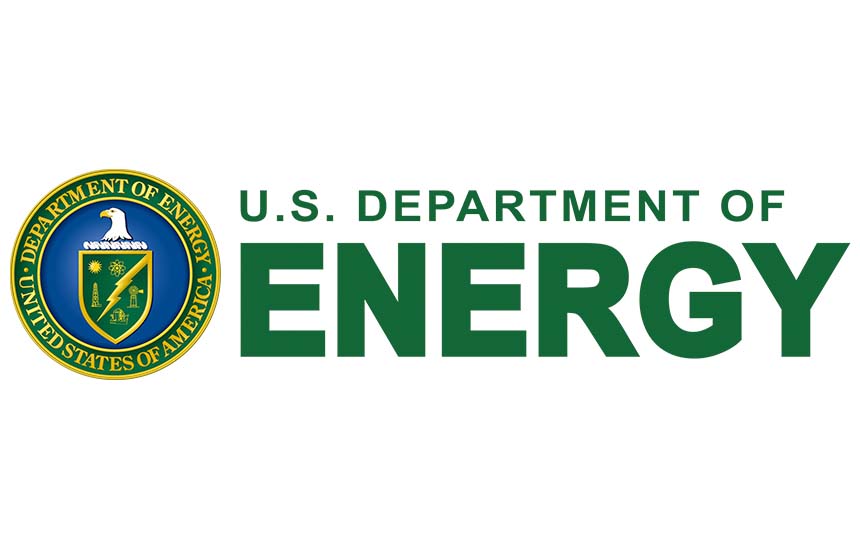- Funding Will Help Reduce Costs and Improve the Performance of Critical Hydrogen Infrastructure and Fuel Cell Technologies, Support DOE’s Hydrogen Shot
In support of President Biden’s Investing in America agenda, the U.S. Department of Energy (DOE) today announced $47.7 million in funding for 16 research, development, and demonstration (RD&D) projects across 13 states to advance clean hydrogen technologies. The selected projects aim to lower technology costs, enhance hydrogen infrastructure, and improve the performance of hydrogen fuel cells—supporting DOE’s efforts to reduce costs and enable commercial-scale deployment of clean hydrogen, which is a versatile energy resource that can be produced with zero or near-zero emissions. Together with the Regional Clean Hydrogen Hubs, tax incentives in the President’s historic Inflation Reduction Act, and ongoing RD&D in DOE’s Hydrogen Program, these investments will help DOE realize its Hydrogen Shot goal of reducing the cost of clean hydrogen to $1 per kilogram within a decade. Accelerating the development of clean hydrogen and enabling its widespread commercial adoption is critical to creating good-paying jobs and new economic opportunities in communities across the nation while also supporting the Biden-Harris Administration’s ambitious climate and decarbonization goals.
“Making next-generation climate technologies cost-competitive is key to realizing President Biden’s vision of a strong clean energy economy rooted in equity and opportunity,” said U.S. Secretary of Energy Jennifer M. Granholm. “Today’s announcement will help accelerate DOE’s efforts to advance clean hydrogen, providing the nation another exciting tool to clean up some of our most energy-intensive sectors while revitalizing American manufacturing for decades to come.”
Clean hydrogen is critical to reducing emissions in some of the hardest-to-decarbonize sectors of the American economy. These sectors include key economic engines that are essential to our economy and quality of life, such as heavy-duty transportation and industrial and chemical processes like steelmaking and fertilizer production. Cutting emissions in these sectors will be especially beneficial for disadvantaged communities that have suffered disproportionately from environmental pollution in the past. Although hydrogen technologies have come a long way over the last several years, costs and other challenges to at-scale adoption need to be addressed for clean hydrogen to realize its full potential.
Managed by DOE’s Hydrogen and Fuel Cell Technologies Office (HFTO), these projects will complement ongoing efforts to reduce the cost of producing clean hydrogen by focusing on several key areas in the clean hydrogen value chain, including hydrogen delivery and storage technologies, as well as affordable and durable fuel cells. Fuel cell RD&D projects will focus particularly on applications for heavy-duty trucks to reduce CO2 emissions and eliminate tailpipe emissions that are harmful to local air quality.
Selected projects include:
- High Performing and Durable Membrane Electrode Assembly with Novel Electrode Structures and Hydrocarbon Proton Exchange Membranes (Honolulu, HI) — Led by the University of Hawaii at Manoa, this project will develop high-performing, durable fuel cells using clean hydrogen. These improvements will support commercial adoption of medium- and heavy-duty fuel cell–powered trucks, which offer a zero-emissions alternative to today’s diesel trucks. The University of Hawaii and the University of California, Merced, a subcontractor on this project, are minority-serving institutions. (Award amount: $4 million)
- Solid State Based Hydrogen Loss Recovery During Liquid Hydrogen Transfer (Golden, CO) — Led by the Colorado School of Mines, this project will engineer and deploy a system for recovering hydrogen that “boils off” (and is then released as a gas) during transfers of liquid hydrogen. The target for this prototype system is to capture 80% of the “boil off” during liquid-hydrogen transfers. Capturing and reusing this hydrogen will reduce the cost of clean hydrogen and limit the environmental impact of hydrogen as an indirect greenhouse gas. (Award amount: $6 million)
- Composite Liquid-Hydrogen Tank for Heavy-Duty Trucks and Aircraft (Niskayuna, NY) — Led by GE Research, this project will design, manufacture, and test a composite tank capable of carrying 20 kilograms (kg) of liquid hydrogen, using low-cost composite materials and manufacturing approaches. The tank will be scalable to larger capacities—60 to 120 kg for heavy-truck applications and 200 to 1000 kg for aircraft applications. High-capacity onboard storage is essential for enabling the use of clean hydrogen in heavy transportation applications, such as trucks and aircraft. (Award amount: $2.9 million)
- Chemical Hydrogen Storage Media with Value-Added Co-Products (Los Angeles, CA) — Led by the University of Southern California, this project will develop chemicals that can efficiently carry hydrogen to its point of use, where the hydrogen is released and the chemical carrier can then be used for valuable agricultural purposes. The team includes Los Alamos and Brookhaven National Laboratories, as well as California State University, Los Angeles, a minority-serving institution. (Award amount: $1 million)
- Enabling Formate-Based Hydrogen Storage and Generation via Multi-Metallic Alloy Catalysts (Baton Rouge, LA) — Led by Louisiana State University, this project will develop a cost-effective approach to storing hydrogen using chemical carriers. Providing lower-cost, higher-capacity methods for hydrogen storage will help enable commercial viability of clean hydrogen in additional applications. (Award amount: $1 million)
For a full list of projects, please click here.
For all topic areas, DOE envisions cooperative agreements for financial assistance awards. The projects selected for award negotiations collectively include $10.7 million in cost share, raising the total public-private investment to $58.4 million.
Selection for award negotiations is not a commitment by DOE to issue an award or provide funding. Before funding is issued, DOE and the applicants will undergo a negotiation process, and DOE may cancel negotiations and rescind the selection for any reason during that time.
Learn more about these selections, HFTO, the U.S. National Clean Hydrogen Strategy and Roadmap, and how the DOE Hydrogen Program and Hydrogen Interagency Task Force are supporting the Biden-Harris Administration’s all-of-government approach to addressing the climate crisis and delivering a clean and equitable energy future for all.

